" The only common keyword that appeared in the 7 speeches, 3 international dialogues, and 10 reports at the 2024 Bund Financial Summit on September 5 was artificial intelligence ." Shao Yilei, Dean of the Shanghai Institute of Artificial Intelligence Finance at East China Normal University in Shanghai Said this while chairing a roundtable during the Bund Financial Summit.
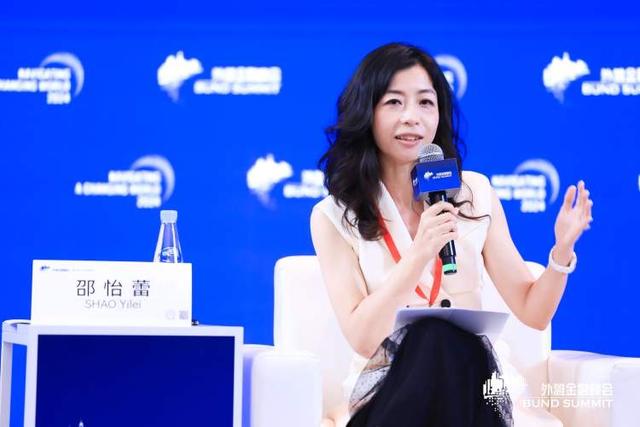
AI technology continues to advance. What are the trends and directions of global AI development in the future? Compared with its main competitors, what are the gaps in China's AI technology research and development, application innovation and industrial layout? …These issues have become the focus of guests at the 2024 Bund Financial Summit.
" The development of artificial intelligence is very recent. From a person's growth metaphor, it may not be 1 year old . Artificial intelligence has caused an uproar and has many applications in our lives, but it is far from enough, especially now In terms of economic impact and production, there are still more expectations that have not yet happened. ”
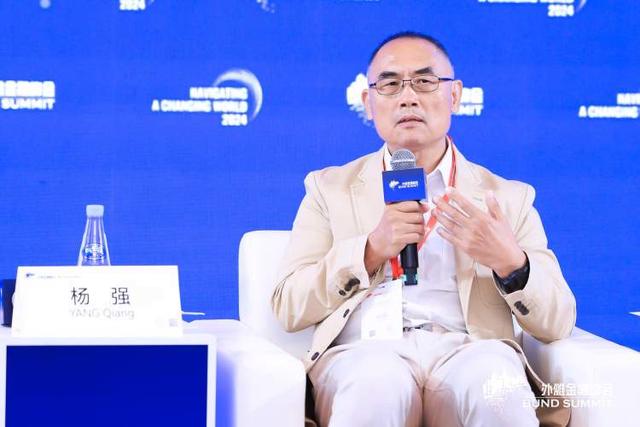
During the 2024 Bund Financial Summit , Yang Qiang, Chief Artificial Intelligence Officer of WeBank, said in a roundtable sharing that the infrastructure of large models is mostly based on statistical principles. Statistics, as a mathematics that drives the development of the entire AI, has had a great impact. Achievement, but where is its upper limit and boundary? Is the more data the better? Until when? When does Scaling law become ineffective? There is currently a lack of scientific discussion.
" Although large models have made great achievements in business and engineering, we have not yet formed a group of scientists who study large models in terms of understanding of the large models themselves and their principles. This lack lags behind large model engineering. " Yang Qiang, chief artificial intelligence officer of WeBank, believes that because he does not understand the principles of large models, he cannot explain the results of large models. Its interpretability and transparency are very poor, so that in some cases with high certainty Do not dare to use it in the field.
"For example, we dare not use large models to do many actuarial tasks in finance; for example, in the medical field, where human life is at stake, today's large models are far from enough." Yang Qiang said, when will it be enough? On the one hand, we need to conduct systematic scientific research on large models, and on the other hand, we need to continue to explore the fields in which existing large models can be applied. This exploration is not so direct and requires us engineers and scientists to work together to do this exploration.
Zhang Peng, CEO of Zhipu AI, believes that the phenomenon and results of a large model are that the larger the number of parameters, the better the effect. We simply and roughly express it as a scaling law phenomenon. “In the early days, it might have been the number of parameters, from billions, tens of billions, hundreds of billions to trillions. It did grow like this. But later, everyone discovered that it was not just a simple number of parameters. It would become the number of parameters multiplied by the amount of data (the amount of training). ), and finally attributed it to the amount of calculation , so the term scaling law is used to summarize this phenomenon. "Zhang Peng, CEO of Zhipu AI, believes that scaling is the key to the whole process. The connotation and denotation of the word law are constantly changing. As of today, everyone can basically think that the ability of your model is determined by how much computing power or amount of calculation you have. So scaling law is at this level and is still in effect today. We predict that it will still be effective for a long time to come.
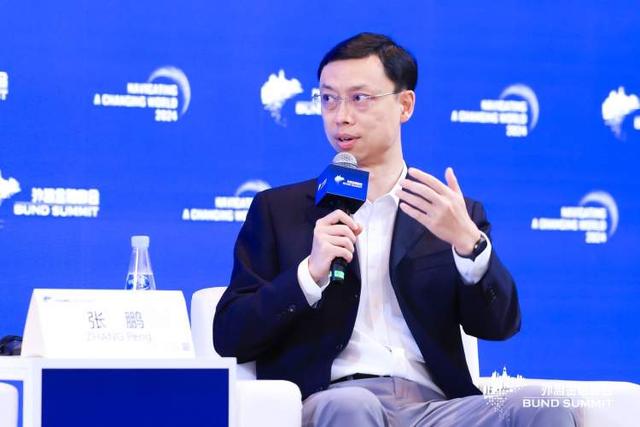
" Will this model in the future definitely increase tenfold or tenfold without any limit? I estimate there will be a slight slowdown, because taking into account the real world, such as the limitations of chips and cards, energy limitations, and cost Restrictions, etc., we will not invest in it without limit, pursue the expansion of simple parameters and calculation amount, and follow the technology From a technical point of view, there is still a lot of room to explore .” Zhang Peng believes that the future may be a continuous upward breakthrough. Scaling is still moving forward, but it will have new connotations and definitions, but in the process. More new technological research breakthroughs are needed to maintain this scaling cumulatively. law.
"There is now a saying that the next step for AGI (general artificial intelligence) is ASI (super artificial intelligence). I understand that the so-called 'singularity' between the two may be." Zhang Peng, CEO of Zhipu AI I think these two concepts are also very vague, and where the boundary line lies may vary from person to person. But it is basically recognized by everyone as a basic understanding that the basic performance of AGI is to achieve the same level of intelligence as a human being, whether in the digital world or the real world.
" About intelligence, there are two things that are related to our counter-intuitive knowledge. The first one is counter-intuitive. Things that we think are difficult for humans to do are easier for machines to do; and things that we think are easy for humans to do are easier for machines to do. " It may be difficult to do, " said Hu Yu , co-founder of iFlytek and former rotating president of iFlytek . In 2016, AlphaGo defeated Lee Sedol, and the most difficult thing for humans to play Go was conquered. It mainly relied on computational intelligence. , calculate faster and save more . What ChatGPT breaks through this time is the cognitive intelligence we mentioned in 2014, including language understanding, knowledge expression, and logical reasoning. However, the things that humans should obviously possess may not have anything to do with intelligence, and for machines, they may not be needed at all or may not be a dimensional thing at all.
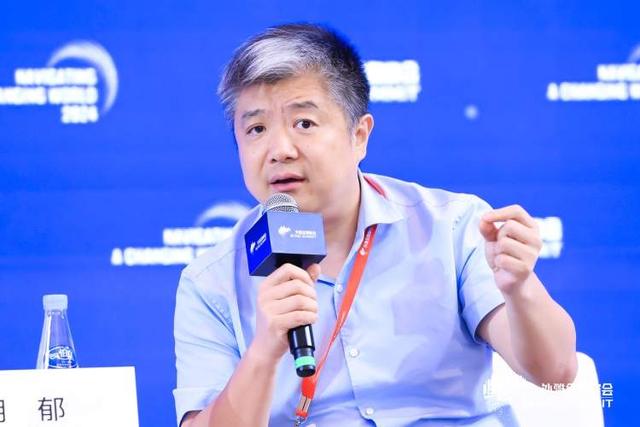
"People control their bodies, experience things, my breathing, digestion and even moving my fingers. This is not the current machine route that crosses computational intelligence or cognitive intelligence, nor is it the embodied intelligence we are talking about that can completely replicate this. "It's a set of things." Hu Yu said.
Peng Wensheng , chief economist of CICC and president of CICC Research Institute, looks at AI from another perspective. He said that the most critical carrier for the development of the entire human society and the substantial improvement in life recovery is the economy of scale effect . In an agricultural society, the important factor of production is land, which has the least economies of scale. With the same technology, you cannot increase the area planted to increase the output per unit of land. This is impossible to achieve. In the era of industrial economy, economies of scale began to emerge. The unit cost of an annual production of 50,000 vehicles was different from that of an annual production of 100,000 or 1 million vehicles. As a result, economies of scale were achieved and people's living standards were greatly improved.
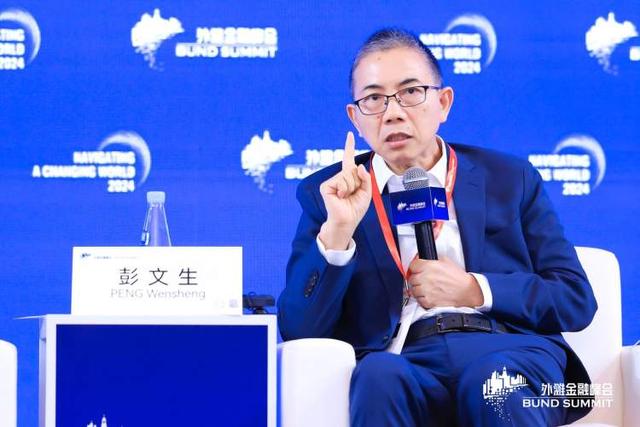
"Today, when we talk about AI, its scale effect is more prominent. Therefore, economies of scale are an important aspect when we think about how AI affects the global economy." Peng Wensheng said.
Hu Yu , co-founder of iFlytek and former rotating president of iFlytek , believes that from another perspective, there are more than two intelligent entities, and collaboration and gaming on this platform are transactions. Before the entire business changes caused by the trading platform, two things must be prepared , which must be full of breakthroughs with a large number of technological innovation points. One is the terminal equipment for consumers to enter, and the other is the infrastructure.
"I think everything we are doing now, whether it is infrastructure or future wearable terminals, robots, and self-driving cars, are in a transitional period . As for the pace, will the platform be subverted in two or three years ? Or will it be? After a while? I have a point of view. There is no single correct answer and different voices are needed .
Regarding the development of general artificial intelligence in the next few years, Yang Qiang, chief artificial intelligence officer of WeBank , believes that artificial intelligence is not only a computer technology, it is an economics. It depends on the input-output ratio. For example, computing power is very expensive now. Data is difficult to obtain and talent is expensive. This fact is about its economics. In addition, the effects of the model are not very credible, such as illusion and accuracy. GPT needs to cross these thresholds. Its cost is low enough and its credibility is high enough. By that time, we understand its scientific nature and have engineering confidence, and we will do better.
Peng Wensheng, chief economist of CICC and president of CICC Research Institute , said that technological progress has spillovers. How can we make the most of it? One is government investment, but how does the government know how to innovate? So the capital market is still very important. How does finance promote innovation and promote the application of artificial intelligence? This is something we should pay attention to and look forward to in the next few years.
"Looking at the history of human development, major scientific and technological progress are all linked to the improvement of the social security system. If there is only one thing that will have the greatest impact on Chinese society at the economic level in the next 5-10 years, along with artificial intelligence, it will really be like As everyone imagines today, if it has such a big effect on improving economic efficiency, it will inevitably mean that China's social security system will be significantly improved and improved in the next 5-10 years, which will be reflected in the pension security of rural elderly and the low-income group. medical security and other social security," Peng Wensheng said.
Hu Yuze, co-founder of iFlytek and former rotating president of iFlytek, has three expectations. The first is that the understanding of Turing machines will be redefined. Consciousness and emotion seem to have nothing to do with Turing machines, and Turing machines are not considered at all. Direct factors to embodied intelligence... these may be a point of theoretical discussion in the future. Secondly, there is the issue of cost-effectiveness, how to reduce the cost of large models to match the needs of the industry. The third is about the impact and governance of social structure, including ethical issues. We have seen a lot of intelligent things that have led to some autonomous driving, which can be controlled by humans. I think that within 5 years, there will be a lot of changes in this aspect. Awareness (will increase), because I have never experienced it before. After more and more experiences, I will definitely make something in this area.
Shao Yilei, dean of the Shanghai School of Artificial Intelligence and Finance at East China Normal University in Shanghai , said that in the next five years, what I want to see most is technology, and intelligence becoming another kind of blood flowing into our society. Because money is a kind of blood, it flows through the economy to the economy and allows our entire society to develop. In the next five years, we will see a second type of "blood" flowing into the social mechanism, which is called "intelligence." And it must flow into the capillaries, not just in the large blood vessels. In the future, there must be two kinds of blood in our economy, one is called money and the other is intelligence.
"In the next five years, I very much hope that scholars in the economic and financial circles will study how to manage this new type of 'blood' called intelligence. I hope that there will be a lot of academic and industrial output to make technology and finance better." into society and help us live a better life," said Shao Yilei.